Gilding is an ancient technique that requires a lot of calm and attention. Real gold is sold in very thin sheets and must be handled with care using special gilder’s tools. Drafts must be banned!
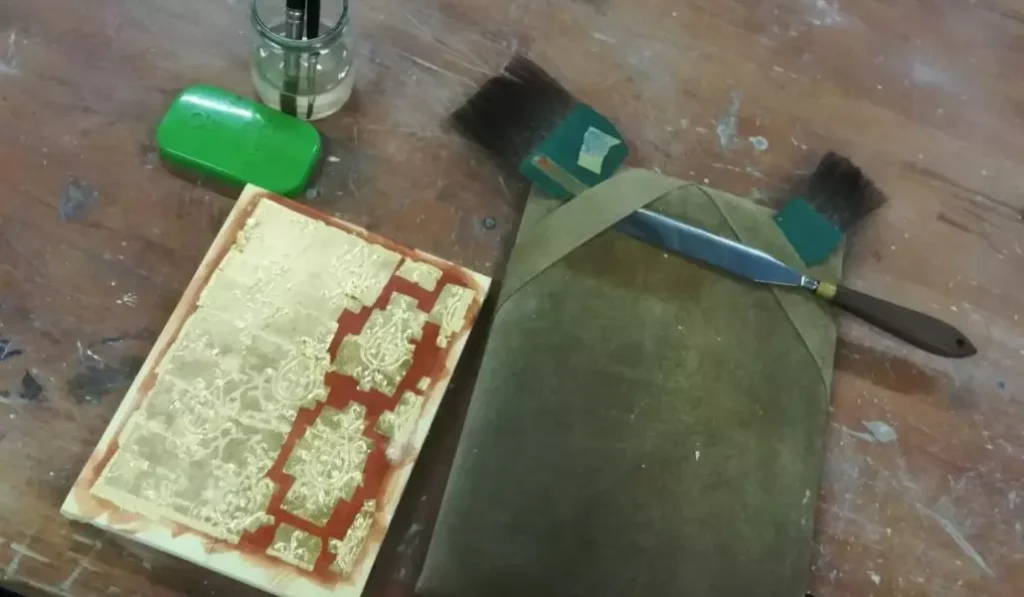
I prepared some wooden boards covered with plaster and rabbit glue, on several layers, specially smoothed with sandpaper, in the old way. the support that must receive the gold leaf must then be primed with bole, a special clay mixed with fish glue in the correct proportions.
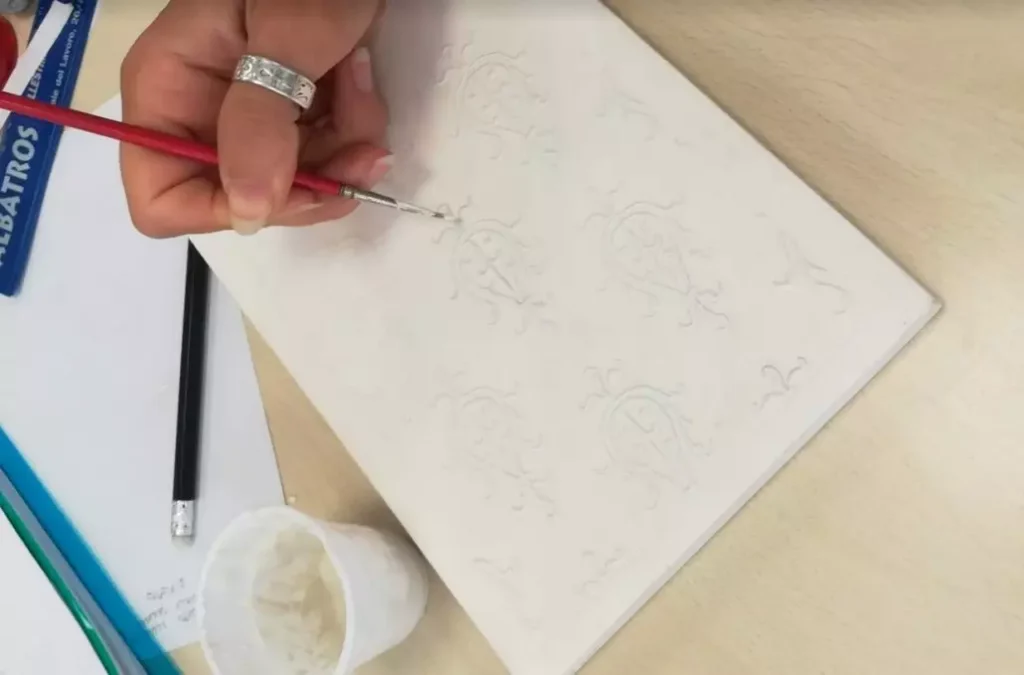
One of the techniques for preparing the support for gilding is that of the pastiglia, that is, designs are created in relief by passing the brush soaked in chalk, rabbit glue and cooked linseed oil in the right proportions and leaving to dry.
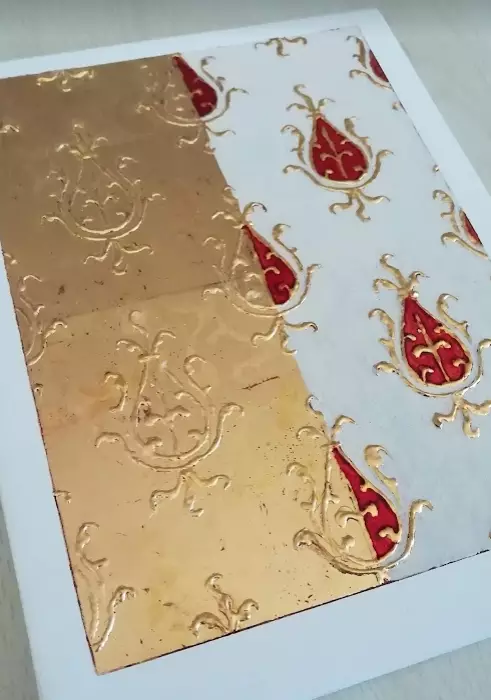
Then the gold leaf is spread and the motifs remain in relief. You can also decide to color the flat surface with enamels or tempera and leave the gold relief pattern.

Burning the gold leaf is the step that is done after having spread the gold leaf, with agate hard stone, the appropriate burnisher, to make the gold or silver bright and shiny.
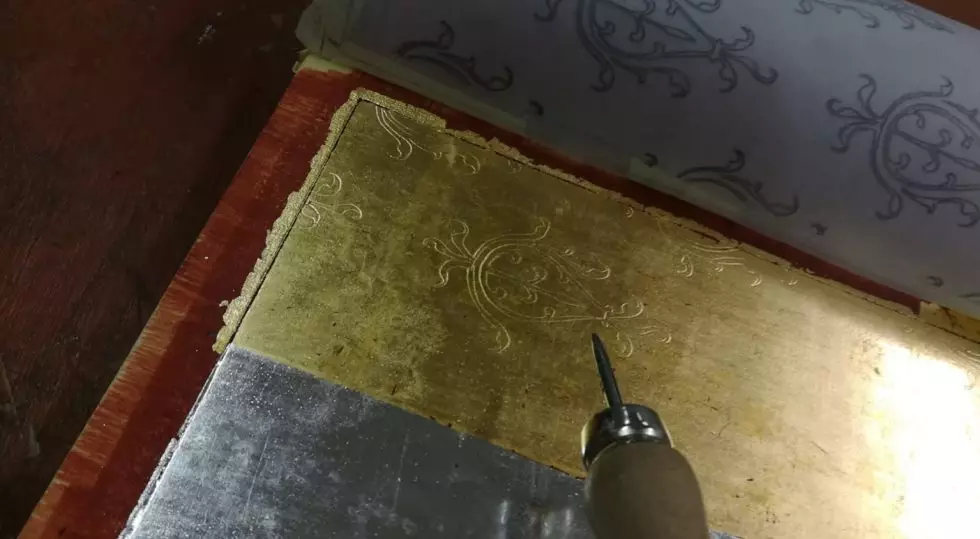
In this tablet I then created the pattern with the punch, creating the outlines and then highlighting the pattern with dots.
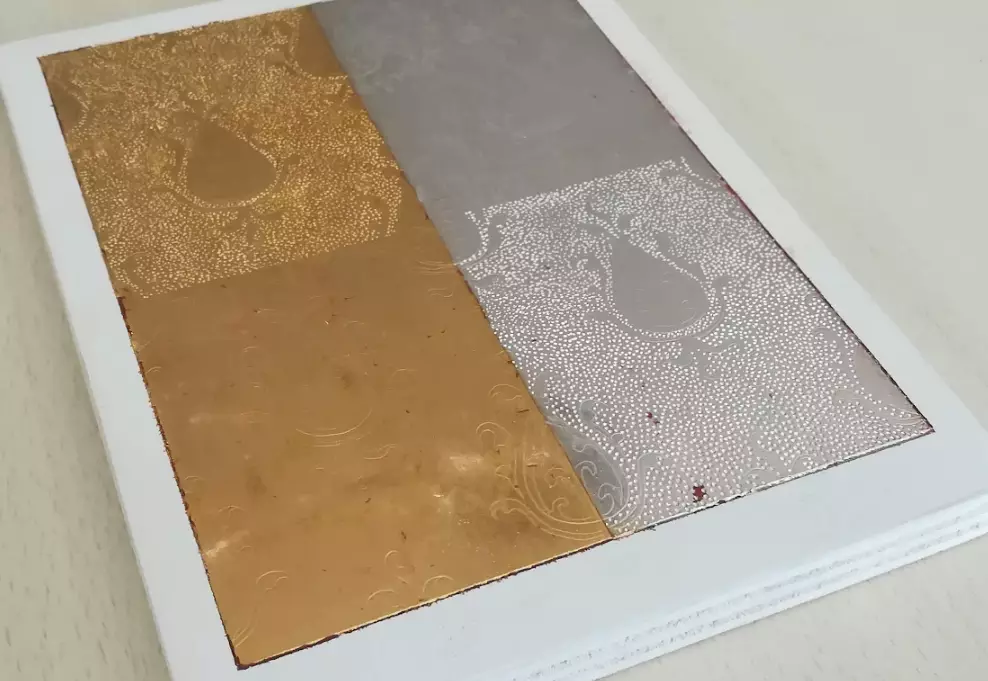
The patience is a must in these cases.
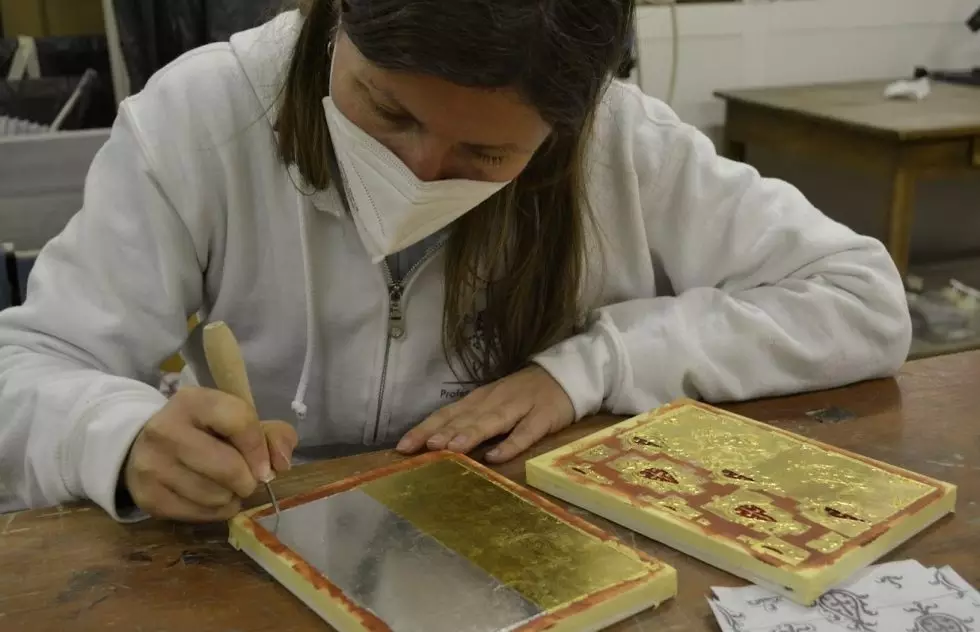
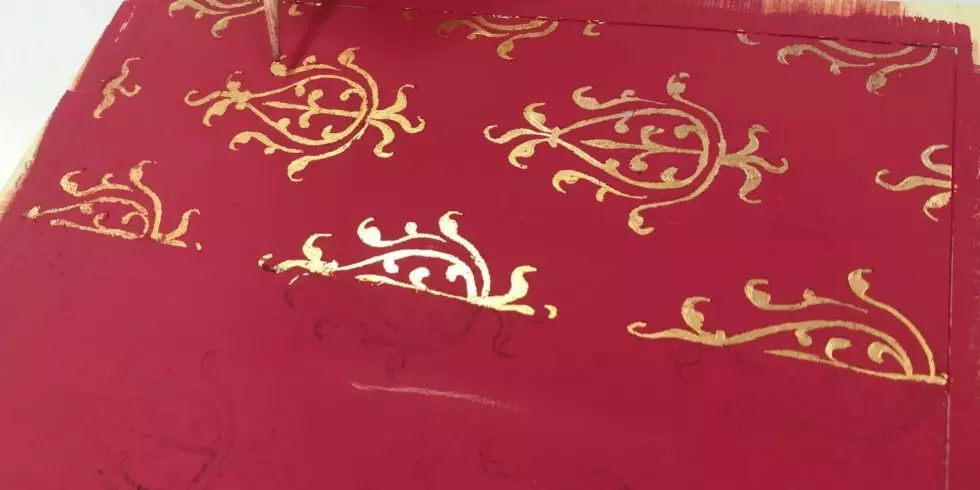
Another technique to enhance gilding is sgraffito, that is, covering the layer of gold with a tempera and then removing the layer of tempera corresponding to the design with a rounded-tipped tool.
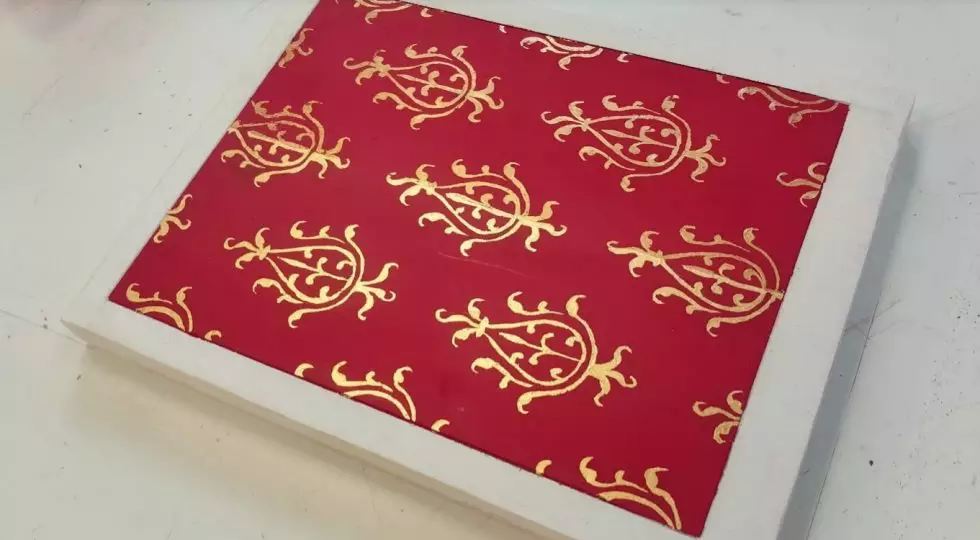
These are all fascinating techniques that require time, patience and a lot of attention.


